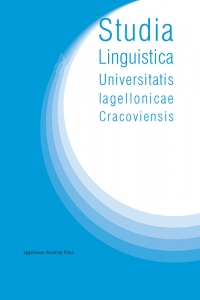Expressiveness and variation: the etymology of germ. kladder ‘dirt, mud’
Expressiveness and variation: the etymology of germ. kladder ‘dirt, mud’
Author(s): Laura SturmSubject(s): Foreign languages learning, Pragmatics, Historical Linguistics
Published by: Wydawnictwo Uniwersytetu Jagiellońskiego
Keywords: Germanic; etymology; expressive germination; littera-rule; kladder;
Summary/Abstract: Although the Germanic dialects offer very ancient vocabulary, the have long been neglected from an etymological perspective. A very old word is e.g. Germ. Kladder ‘dirt, mud’. Because of its onomatopoetic nature this word shows a considerable diversification and expansion in the Germanic languages: klatt- and klāt‑ in Low German, Middle German, Upper German next to kladd‑ only in Low German. Those words ultimately go back to a Proto-Germanic substantive *klađđō f. ‘clot, lump, mud, dirt’, leading to the well-known PIE root *gleh1‑ ‘to be greasy, to be dirty’.
Journal: Studia Linguistica Universitatis Iagellonicae Cracoviensis
- Issue Year: 133/2016
- Issue No: 2
- Page Range: 109-114
- Page Count: 6
- Language: English

